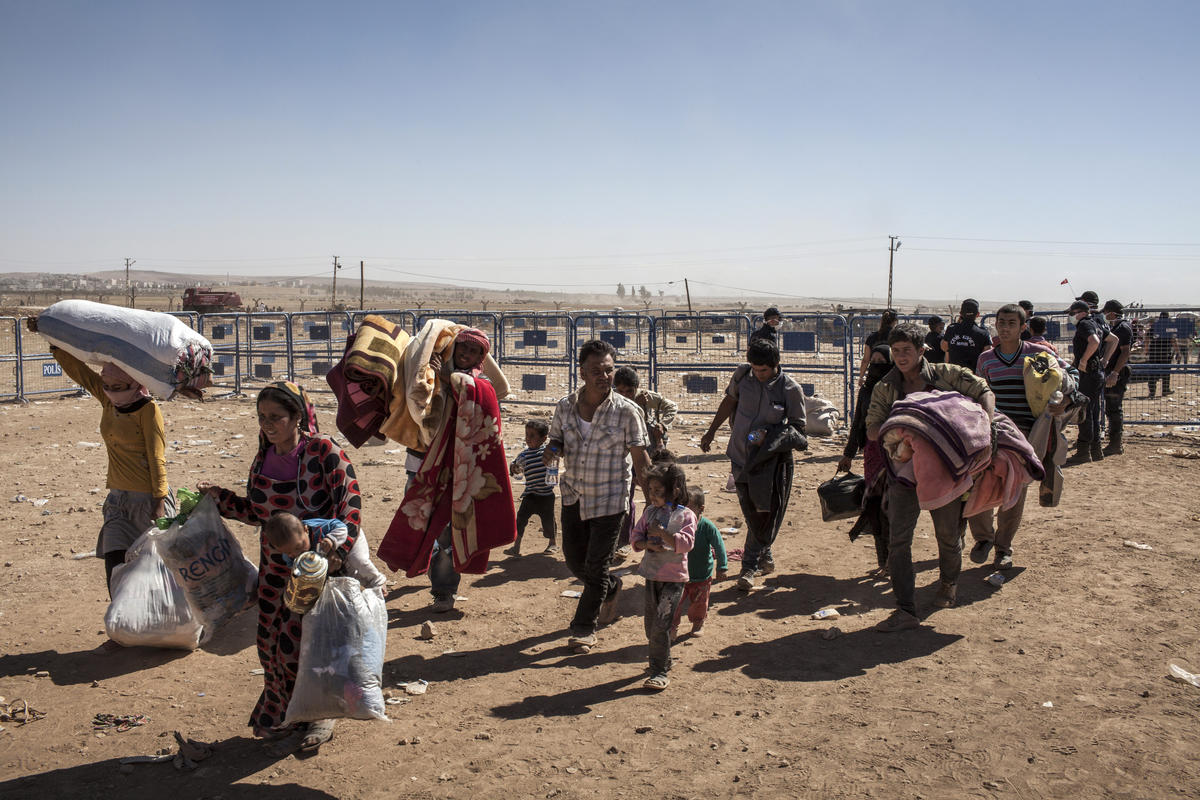EU asylum programme must focus on burden-sharing, says Lubbers
EU asylum programme must focus on burden-sharing, says Lubbers

GENEVA, Nov 5 (UNHCR) - The UN refugee agency has welcomed today's adoption of the European Union's new multiannual asylum programme, but warned that much more needs to be done for refugee protection both in Europe and beyond.
"UNHCR looks forward to working with the EU to make sure that we provide better protection to refugees," said UN High Commissioner for Refugees Ruud Lubbers, responding to the European Council's adoption of the EU's five-year programme in the area of freedom, security and justice, known as the "Hague Programme", in Brussels on Friday.
He added, "The first phase of EU harmonization of asylum policy was only a beginning. Much more needs to be done, both within Europe's borders and beyond."
The first phase, from 1999-2004, saw the adoption of a set of directives containing minimum standards. Now that EU countries must transpose these directives into national legislation, UNHCR has urged them to adopt or retain national laws which offer higher levels of refugee protection instead of harmonizing their policies at the level of the lowest common denominator allowed by the directives.
In an editorial released earlier in the day, Lubbers had advised EU leaders that to manage instead of simply react to today's asylum and migration challenges, they need to harmonize not only their laws but also their practice.
The Hague Programme states that the transposition process will be monitored, with an evaluation of the measures adopted in the first phase of harmonization set for 2007. UNHCR has called on the EU to ensure that the process is transparent and consultative, taking into account the views of independent experts, including UNHCR and specialised non-governmental organisations.
In Brussels, EU leaders agreed to put a common asylum system in place by 2010, with the European Commission studying the legal and practical implications of joint processing of asylum applications within the EU.
As High Commissioner Lubbers pointed out in this morning's editorial, the current standards of refugee recognition and asylum procedures in EU countries vary greatly. UNHCR hopes that the joint processing, if it is ever adopted, will ensure greater consistency and higher quality in decision-making.
This, in turn, could lead to a faster and more efficient system for returning properly rejected cases to their home countries. In the meantime, practical cooperation among EU states and between them and UNHCR could help to improve asylum decision-making throughout Europe.
The refugee agency also welcomed the external dimension of European asylum policy, noting that the Hague Programme's "Regional Protection Plans" could fit well with UNHCR's Convention Plus initiative to help the bulk of the world's refugees who remain in developing countries. Thus the EU could contribute a great deal towards building a more accessible, equitable and effective system of refugee protection worldwide.
"These plans should be directed at a genuine improvement in the protection and welfare of refugees in other parts of the world," said Lubbers. "They must also be coupled with European readiness to share responsibilities with the developing countries where most of the world's refugees are sheltered. If their purpose is simply to shift the burden, then not only will they be doomed to failure, they will also seriously undermine the global refugee system, to the detriment of everyone including the EU itself."
In his editorial, the High Commissioner had urged EU leaders to shun political expediency in favour of a reliable asylum system that is fair and efficient.








